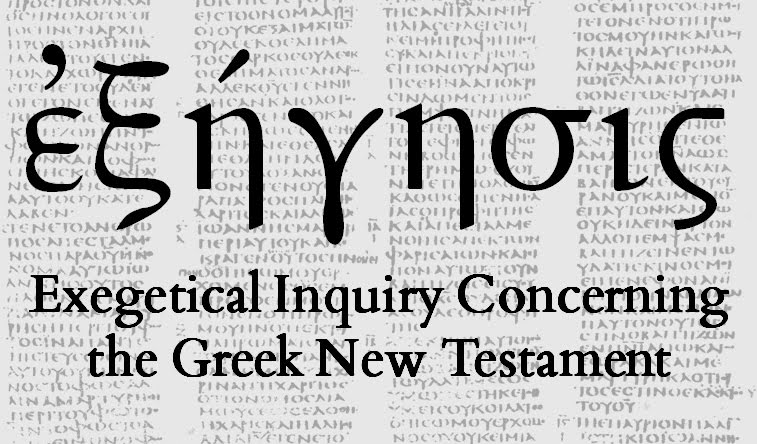The Advent of God’s Son as Judgment in John’s Gospel:
Justification and Condemnation Already
Scripture’s announcement that salvation is found in “no other name” than in Christ Jesus necessarily entails an exclusive claim that apart from belief in him, no one will be saved. According to John’s Gospel, Jesus presents this exclusive claim in a familiar passage.
For God so loved the world, that he gave his only Son, that whoever believes in him should not perish but have eternal life. For God did not send his Son into the world to condemn the world, but in order that the world might be saved through him. Whoever believes in him is not condemned, but whoever does not believe is condemned already, because he has not believed in the name of the only Son of God. And this is the judgment: the light has come into the world, and people loved darkness rather than light because their works were evil.
With his advent, God’s Son brought forward two correlated acts of God—resurrection and judgment—that belong to the last day that consummates the present age and ushers in the age to come. The mission of God’s incarnate Son sweeps forward both the wrath of God’s coming judgment revealed in his sacrificial death and the gift of God’s resurrection life disclosed in his glorious resurrection from the dead. Because Jesus is the incarnate Son of God, the Father authorized him to have “life in himself” to bestow this life of the coming age to whomever he desires and to set in motion his execution of the coming judgment (John 5:21-29).
Thus, even though John’s Gospel never uses the verb δικαιόω or the noun δικαίωσις, the Gospel contributes much to the biblically coherent teaching concerning justification and condemnation as the divine verdicts of judgment on the last day brought forward in incarnate coming of God’s Son. Throughout his Gospel John portrays Jesus as God’s Son who has already brought forward and set in motion things that properly belong to the coming age including judgment, salvation, eternal life, resurrection, justification, and condemnation. Everyone who hears the gospel and believes the Father already has eternal life and will not be condemned, which is the inverse way of saying “will be justified.” So, for example, Jesus assures, “Truly, truly, I say to you, whoever hears my word and believes him who sent me has eternal life. He does not come into condemnation, but has passed from death to life” (John 5:24). When Jesus says “does not come into condemnation,” this is a figure of speech (litotes) that uses understatement that emphatically expresses the affirmative by negating its opposite. Thus, to say “does not come into condemnation” is an emphatic way of affirming “is most assuredly justified” by way of negating its opposite. If litotes does not sufficiently emphasize the correlation between eternal life and justification, Jesus underscores his announcement by asserting that everyone who believes the Father already experiences a phase of the resurrection life of the age to come because they have already crossed over from death to life.
Resurrection unto life which stands opposite resurrection unto condemnation (5:29), both verdicts of the Day of Judgment, are already manifesting themselves in responses to the Word of God’s Son, the gospel. God’s Son did not come to condemn the world but that through him the world might be saved (3:17). Nevertheless, the arrival of God’s Son brings the Day of Judgment forward in that the gospel announces the verdict of judgment: “Whoever believes in him is not condemned [is most assuredly justified], but whoever does not believe is condemned already, because he has not believed in the name of the only Son of God” (3:18). Justification and condemnation take place in two phases; belief and unbelief in Jesus Christ already signal the verdicts not yet issued on the last day.
